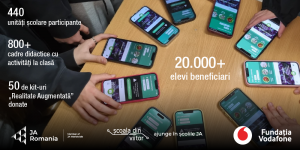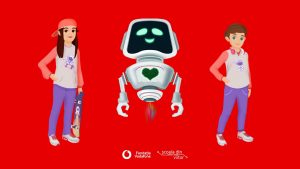DreamLab users have helped Imperial College London complete Phase 1 of its Corona-AI research project in only six months, pinpointing molecules in everyday plant-based foods which have anti-viral properties, and drugs that could be potentially ‘repurposed’ against COVID-19.
Thanks to DreamLab users across the globe, Imperial College London has completed Phase 1 of its Corona-AI research project in only six months. This is significantly faster than would be possible with standard research methods.
Scientists working on the project at Imperial College London have announced early findings from the research, including the identification of molecules with anti-viral properties in everyday plant-based foods like berries (particularly blackcurrants, cranberries and blueberries), apples, oranges, lemons, cabbage, broccoli, onions, garlic, parsley and beans.
The study has also found that common drugs used to combat cardiovascular and metabolic disorders – such as simvastatin, atorvastatin and metformin – could be potentially ‘repurposed’ against COVID-19. The findings will now be further analysed by the researchers, who say clinical validation is needed to assess what impact these molecules might have.
Dr Kirill Veselkov from the Department of Surgery and Cancer at Imperial College London, who is leading the Corona-AI project, says, “While there is, rightly, much focus on finding a vaccine for COVID-19, we are looking for ways to potentially help people when they have contracted the virus, reducing either the duration or the severity of the disease.”
“For patients who may not need hospital there is a critical need for innovative and cost-effective out-of-hospital treatment. We expect that precision nutrition strategies – designed with phytochemically rich Hyperfoods – may offer a novel solution in this regard.”
Helping to fight COVID-19
Imperial College London’s Corona-AI research project has been made possible thanks to DreamLab users across the globe.
DreamLab works by using the collective processing power of charging smartphones to create a virtual supercomputer capable of processing many thousands of calculations, speeding up the time it takes to deliver results.
Since April, DreamLab users have had the option to power either Imperial’s cancer research project, Project DRUGS (Phase 4), exploring links between specific drug and food molecules and cancer genomic networks, or Corona-AI Phase 1. So far, the DreamLab app has been downloaded by almost one million smartphone users in 17 countries to help speed up scientific research.
Andrew Dunnett, Vodafone Group Director, SDGs, Sustainable Business and Foundations, said, “As COVID-19 continues to challenge our society in unprecedented ways, the DreamLab app has enabled a global community of volunteers – from Vodafone customers to users of other networks – to make a difference. It’s an inspiring example of people and technology joining forces to make the world a better place.”
During Phase 1, the Corona-AI project has examined thousands of existing drug and food molecules, using Artificial Intelligence to crunch 100 million mathematical calculations and help scientists explore their potential effect on COVID-19.
When all phases of the research are complete – estimated to be December 2021 – results will be made available to the medical community to facilitate clinical trials. Food-related findings could potentially be translated into dietary advice for patients recovering from COVID-19.
For more information on DreamLab and the Corona-AI project, please visit https://fundatia-vodafone.ro/dreamlab/?lang=en




